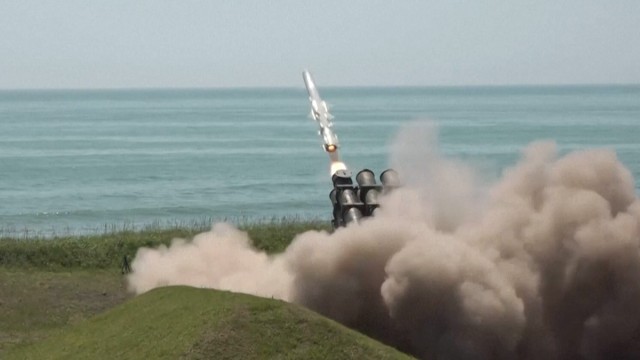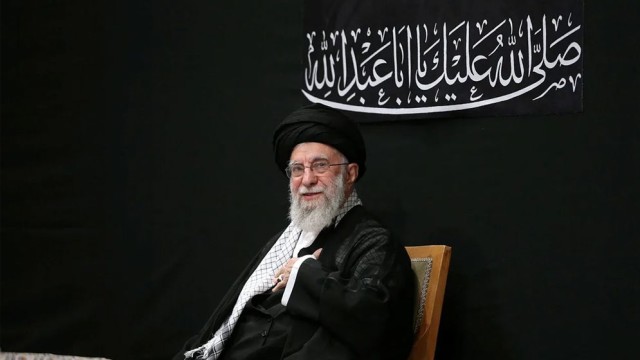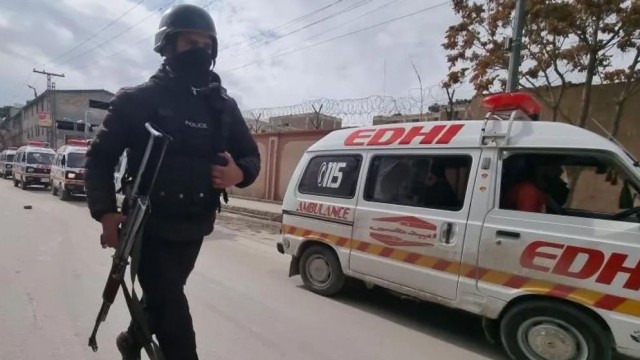Tokyo, June 25 (V7N) – For the first time in its post-war history, Japan has conducted a missile test on its own soil, marking a significant shift in its defense posture amid growing regional tensions, particularly with China.
The test, conducted on Tuesday (June 24), involved the launch of a Type-88 Surface-to-Ship missile from the Shijunai Anti-Air Firing Range on the northern island of Hokkaido. According to a report by the Associated Press (AP), the missile was fired by the 1st Artillery Brigade of the Ground Self-Defense Force at an unmanned target vessel located approximately 40 kilometers off the island's southern coast.
Previously, Japan had relied on foreign territories—notably in the United States and Australia—for such live-fire exercises. However, this marks the first time the country has carried out a missile test within its own borders. The military has confirmed plans for additional tests on Sunday.
Military analysts say the move is aimed at deterring Chinese aggression and strengthening Japan’s military capabilities in the face of intensifying security threats in the South China Sea and Western Pacific.
A Strategic Shift
Japan’s missile development is part of a broader shift in national defense policy. In 2022, Tokyo adopted a five-year security strategy, signaling a departure from its long-standing pacifist stance under its post-World War II constitution, which had limited its use of force strictly to self-defense.
Under this new doctrine, Japan has taken steps to enhance its missile capabilities, including the domestic development of the Type-12 ship-launched missile system, which boasts an extended range of 1,000 kilometers—ten times that of the Type-88, which has a range of 100 kilometers. The Type-88 itself, developed by Mitsubishi Heavy Industries, is a truck-mounted, precision-guided missile designed for coastal defense.
In addition, Japan is preparing to deploy US-made Tomahawk cruise missiles and is building a new missile testing range on the remote Minamitorishima island, where Chinese aircraft carriers were recently spotted patrolling.
Regional Concerns
The missile test and Japan's broader military expansion have sparked concerns among regional actors and analysts. Many view these moves as a potential trigger for further military escalation in East and Southeast Asia.
While the Japanese government maintains that these steps are part of a defensive strategy, aimed at preserving regional stability and protecting national interests, the increasing frequency of military exercises and weapons procurement—especially in coordination with the United States—has raised fears of a militarized arms race in the region.
As Japan continues to recalibrate its security policy in response to an evolving geopolitical landscape, Tuesday's missile test serves as a stark signal of the nation's growing assertiveness in military affairs—and the uncertain road ahead.
END/MSS/AJ































Comment: